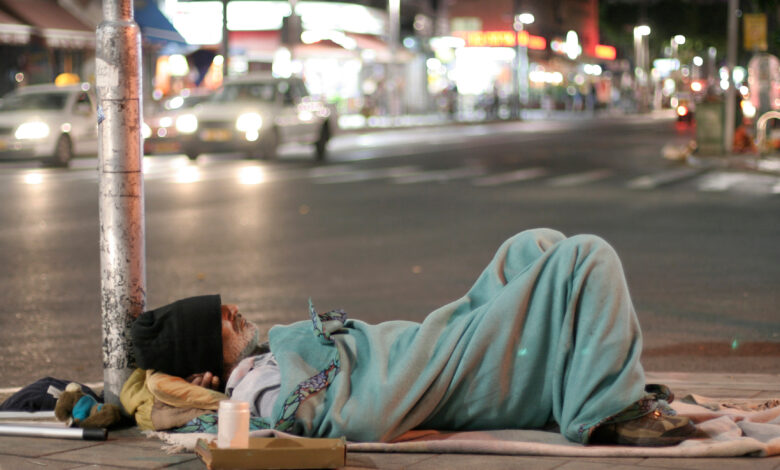Paris Homeless population Crisis Deepens Amidst Olympics Preparation

In the heart of Paris, beneath the rumbling of the Stalingrad Métro station, a heart-wrenching scene unfolds every morning. In this Paris homeless camp hundreds of migrants, primarily men, huddle together for shelter, crammed under an overpass. Their makeshift beds are often nothing more than pieces of cardboard, tents or old mattresses scattered behind urine-soaked fences, their future uncertain.
What is happening in Paris is emblematic of a growing crisis in the French capital, as the government accelerates its efforts to relocate the homeless population to other parts of the country. The stated goal is to alleviate the pressure on Paris’s already strained emergency homeless shelter services.
However, whispers of a connection between these relocations and the upcoming 2024 Olympics in Paris have sparked concern among NGOs and elected officials.
While the government denies any correlation between the relocations and the Olympics, the timing is conspicuous. As the Games draw near, hotels in Paris are reportedly canceling their emergency housing contracts with the government to make room for the expected influx of tourists. In 2022, nearly 50,000 homeless individuals were housed nightly in hotels across the Ile-de-France region, home to Paris. This year, at least 5,000 of these hotel rooms have already been canceled, likely contributing to a rise in homelessness.
While the loss of these hotel rooms is significant, it’s only part of the problem. Approximately half of France’s homeless population is concentrated in the Ile-de-France region, where access to charities, job opportunities, and personal connections is more readily available. Of the 200,000 homeless people housed nightly across France, 100,000 are in the Ile-de-France region. The scarcity of emergency shelter spots in Paris is undeniable.
The relocations involve transporting homeless individuals, many of whom are migrants, to other regions in France. Since April, around 1,800 people have been relocated, primarily to temporary shelters called SAS (Service d’Accueil et d’Orientation), which can house up to 50 people each. However, these shelters only offer a three-week reprieve. While some occupants may find housing and employment solutions during this period, many end up back on the streets afterward.
The relocation plan has sparked concerns. Activists argue that the regions receiving relocated individuals lack sufficient emergency housing spaces. This creates a cycle where homeless individuals, while no longer in Paris, continue to face homelessness elsewhere in the country. Critics assert that the government’s approach is merely shifting the problem rather than solving it.
Experts stress that for this system to work, it must be adequately funded and managed. Additionally, it should involve all stakeholders, from the relocated individuals to the host cities, in the planning process.
As Paris prepares to host the 2024 Olympics, the homeless crisis remains an urgent issue. While the government asserts that it cannot accommodate all the misery in the world, activists argue that addressing homelessness requires careful consideration and a humane approach. The outcome of this challenge will significantly impact the lives of countless individuals on the streets of Paris and beyond.





